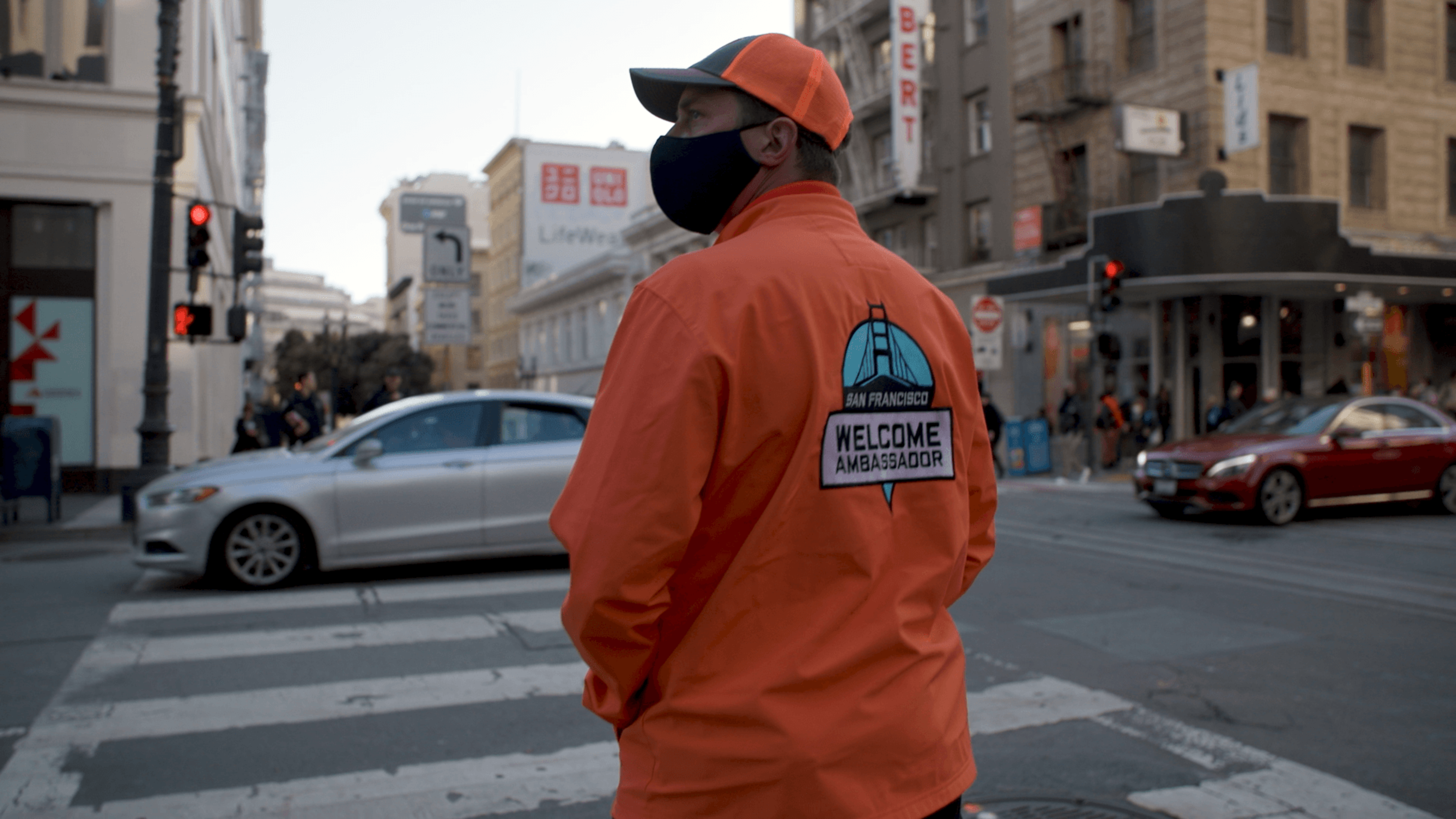Ahead of the holiday shopping season, city officials are planning to flood San Francisco’s Downtown and surrounding areas with up to 150 unarmed community ambassadors and retired police officers to assuage crime and safety concerns.
Mayor London Breed is announcing the initiative at a Monday press conference at Hallidie Plaza outside the Powell Street BART station that includes members of the Board of Supervisors and other public officials.
The new fleet of ambassadors will be split between so-called Safety Ambassadors personnel from Urban Alchemy, orange-jacketed Welcome Ambassadors, BART service attendants and retired police officers hired through SFPD’s community ambassador program (opens in new tab).
San Francisco has currently allocated funding for 250 ambassadors who are posted in Mid-Market, the Tenderloin, Downtown and other tourist hotspots. The expanded program will also include increased coverage at BART and Muni stations, city-operated parking garages and neighborhoods like the Mission.
“San Francisco has a significant police staffing shortage, so we need to be more creative in ways that deliver a positive and welcoming experience on our street and while also ensuring our sworn officers can do their jobs,” said Mayor London Breed in a statement.
Supervisor Hillary Ronen, who represents the Mission, said in an interview that the neighborhood is receiving around $2 million annually for its ambassadors who will be posted in the neighborhood’s “most difficult areas.” Exact locations and the number of ambassadors are still to be determined, but they’ll be active six days a week between the hours of 8 a.m. and 8 p.m.
SFPD Chief Bill Scott described the department’s community ambassador program, which currently employs 50 retired officers in Union Square, Chinatown, Fisherman’s Wharf, the Haight and the Castro, as a “force multiplier” that frees up sworn officers to focus on investigating crime and community policing.
“We can’t make up for the 500 officers that we’re short, but we darn sure can be creative and innovative to make things better,” Scott said. He added the ambassadors, who have a police radio, can call in reports directly and improve response times.
In addition to the ambassadors, BART plans to add additional restroom and elevator attendants to Downtown transit stations to act as a presence during all operating hours.
The expanded ambassador program comes on the heels of high-profile safety incidents in and around transit stations, including a fatal stabbing at 24th Street Mission BART plaza in August and a fatal shooting (opens in new tab) at Civic Center Station in February.
Hallidie Plaza, the site of Monday’s press conference, was also the site of a fatal stabbing last month.
The first group of new ambassadors, who will be coordinated by the San Francisco’s Department of Emergency Management, are expected to be deployed within the next six weeks, pending hiring and training.
The expanded program is expected to cost around $8 million. Breed said that the expansion will be funded through a mix of sources, including city savings and existing funding streams for city departments.
“Our goal is to ramp it up and to sustain it and we’ll need to put some additional resources in our budget to do so,” Breed said.
Concerns about public safety are also an oft-cited factor in the slow return of Downtown office workers in San Francisco.
Last week, Breed and the city’s budget office acknowledged that a mass shift to remote and hybrid work—particularly in the all-important technology sector—may prove permanent, potentially leading to major ripple effects in the city’s economy and tax revenue.
Breed attributed the increased focus on ambassador programs to the staffing shortage (opens in new tab) at the police department, calling for a significant expansion of the SFPD’s Police Service Aides (PSA) program, which consists of civilian staff who are meant to support officers and free up their ability to respond to service calls.
These aides are required to wear uniforms, but do not carry firearms. They are charged with public safety tasks like directing traffic, enforcing vehicle codes and parking rules, processing complaints and providing crowd control.
The police department said it currently employs around 220 PSAs and 20 supervisors in the program.
